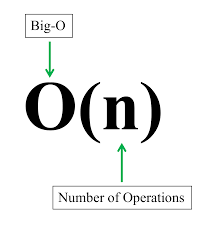
Big-O Notation Quizzes
Big-O notation describes the efficiency of algorithms by measuring their time and space complexity, helping developers evaluate performance as input size grows.
Want to create your own quiz?
Enter a topic to auto-generate a quiz instantly.
Graph Traversals: BFS vs DFS Big-O Analysis Quiz
Explore the time and space complexities of Breadth-First Search and Depth-First Search with this quiz focused on Big-O analysis in graphs. Enhance your understanding of traversal strategies, differences in resource usage, and common graph exploration scenarios.
Greedy vs Dynamic Programming: Efficiency Trade-Offs Quiz
Explore the efficiency trade-offs between greedy and dynamic programming algorithms with scenarios highlighting optimality, time complexity, and real-world applications. This quiz helps learners distinguish when to use each approach for problem-solving efficiency and correctness.
Hash Table vs Binary Search Trees: Efficiency Quiz
Explore the comparative efficiency of hash tables and binary search trees with this focused quiz, covering key operations, performance in real-world scenarios, and storage characteristics. Enhance your understanding of data structure selection for various computational problems.
Sorted vs. Unsorted Address Book Performance Quiz
Explore the impact of maintaining sorted versus unsorted address books on search efficiency, insertion speed, and data management. This quiz helps you assess your understanding of algorithmic performance concepts relevant to address book organization.
Sorted vs. Unsorted Address Book Performance Quiz
Test your knowledge of data organization, comparing lookup performance in sorted and unsorted structures, and exploring tradeoffs in search efficiency. This quiz is designed for learners building foundational insights and candidates preparing for interview questions on data structures.
Sorting Algorithm Efficiency Quiz: Big-O Showdown!
Challenge your understanding of sorting algorithms and their Big-O time complexities with this focused quiz. Explore key differences between popular sorting methods, efficiency in common scenarios, and foundational Big-O concepts useful for computer science and coding interviews.
Sorting Algorithm Efficiency Quiz: Big-O Showdown!
Test your understanding of sorting efficiency, covering algorithms like bubble sort, insertion sort, merge sort, and quicksort, along with their Big-O complexities. This quiz is designed for learners mastering time analysis and candidates preparing for interview questions on algorithm performance.
Sorting and Searching Fundamentals: Algorithms, Complexities, and Trade-offs
Explore the key principles of sorting and searching algorithms, including performance complexities and fundamental trade-offs. This quiz helps reinforce understanding of algorithm efficiency, practical applications, and decision-making for selecting appropriate data processing methods.
Sorting and Searching Fundamentals: Algorithms, Complexities, and Trade-offs
Test your understanding of sorting and searching basics, including built-in sort complexities, binary search logic, pre-sorting strategies, stability, and memory considerations. This quiz covers essential concepts and practical scenarios for efficient data manipulation.
Sorting vs Searching: Understanding Efficiency in Common Tasks
Explore the essential differences and practical implications of sorting versus searching in common computational tasks. This quiz delves into algorithms, efficiency, and real-world scenarios, helping you understand how choosing between sorting and searching can impact performance and outcomes.
Sorting vs Searching: Understanding Efficiency in Common Tasks
Test your knowledge of sorting vs searching algorithms and learn to identify O(n), O(n log n), and O(log n) complexities in practical scenarios. This quiz helps you quickly recognize which method best suits various real-world tasks and why algorithmic trade-offs matter.
Space Complexity Mastery Quiz: Memory Efficiency in Algorithms
Challenge your understanding of space complexity with scenario-based questions on memory-efficient algorithms, data structures, and space analysis techniques. This quiz helps sharpen your grasp of key concepts vital for optimizing algorithm performance and minimizing resource consumption in computational problem-solving.
Time Complexity Search Algorithm Quiz
Challenge your understanding of search algorithm time complexities with this focused quiz, designed to assess your ability to distinguish between various algorithmic approaches and their performance. Learn about linear, binary, and specialized search strategies by analyzing real-world examples and theoretical concepts.
Time Complexity Search Algorithm Quiz
Test your knowledge of search algorithm complexities, including linear search, binary search, jump search, and exponential search. This quiz is designed for learners strengthening their Big-O analysis skills and candidates preparing for technical interview questions on algorithm efficiency.

